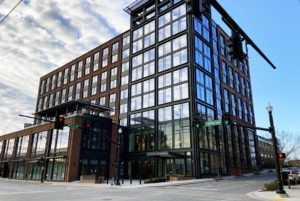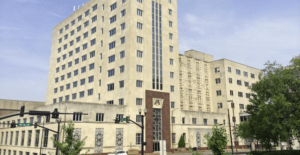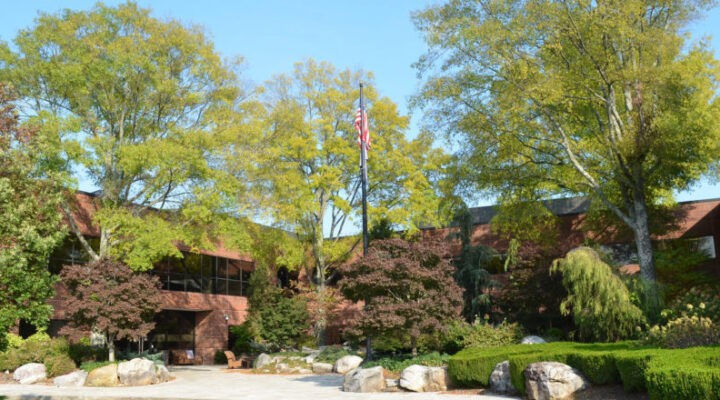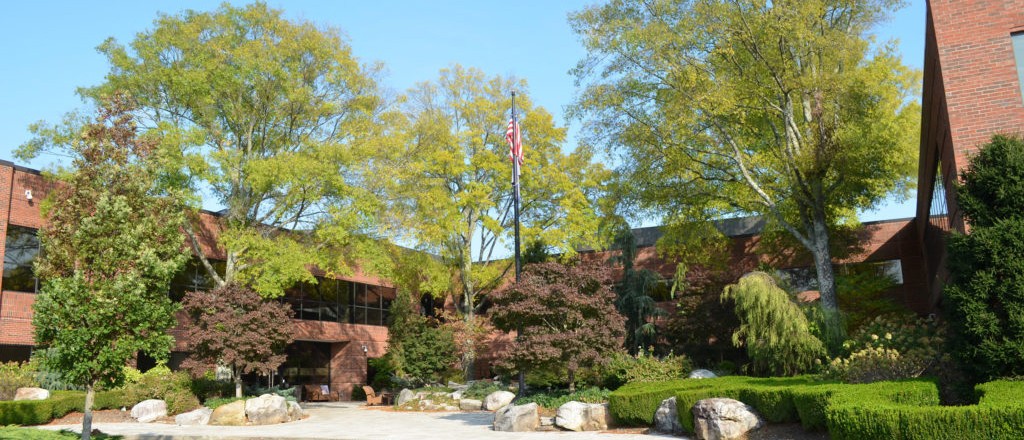In the span of six years, Lifeway Christian Resources has downsized its headquarters twice, moving from a 15-acre campus with nine buildings to its newest intended location that will be 46,000 square feet — about the size of an average American supermarket.
On Jan. 13, Lifeway announced plans to lease 46,000-square feet in a Brentwood, Tenn., mixed-use development called Maryland Farms. Brentwood is a southern suburb of Nashville.
“Selling our large building downtown and moving to a smaller, more open footprint is part of a larger, strategic vision for the organization,” Lifeway CEO Ben Mandrell said. “The new location allows us to be better stewards of our resources and is a better fit for the culture we’ve created at Lifeway.”
Mandrell said employees will continue to work remotely and will come to the building for collaborative work.
“Lifeway has been a leader when it comes to remote-based work and redefining the corporate office,” he said. “We’ve moved from a corporate-headquarters mindset to a teaming-space mindset. Imagine an environment that feels more like a college student union than a corporate headquarters.”

The current Lifeway headquarters in downtown Nashville cost about $100 million to construct, furnish and occupy.
Lifeway earlier had announced the sale of the current 277,000-square-foot headquarters it moved into in November 2017. The $95 million sale is less than the $100 million spent on the relocation less than four years ago.
That building, located in downtown Nashville, was built as the publishing arm of the Southern Baptist Convention went through massive changes, ultimately resulting in the closure of its 170 brick-and-mortar Lifeway Christian Stores nationwide. The retail operation lost almost $50 million from 2014 to 2019.
Once an omnipresent force in all Southern Baptist churches — providing everything from books and curriculum, to hymnals and recordings, to consultants and conferences — the agency has suffered the same fate as most denominational publishers due to declining curriculum sales and decreasing denominational loyalty. Lifeway gets no funding from the Southern Baptist Convention’s Cooperative Program and must exist on income it generates through product sales and services.
The pandemic brought yet another challenge — as churches canceled vacation Bible schools and stopped meeting in-person for Sunday school — causing the company to announce budget cuts of up to $30 million in 2020, a move that included hiring freezes, salary cuts for executives, layoffs and a halt on discretionary spending.

Former headquarters of the Baptist Sunday School Board in Nashville.
A decade ago, in 2001, Lifeway reported to the SBC annual sales income of $400 million. In its most recent report to the SBC, Lifeway reported 2020 revenue of $206 million. In the same time period, Lifeway’s unrestricted net assets dropped from $334 million to a deficit of $41 million, according to financial statements published in the SBC Annuals for 2003 and 2021.
Mandrell told messengers to the 2021 SBC annual meeting that proceeds from the sale of the current property will be used to strengthen the pension fund, fortify cash reserves, invest strategically in what best serves local churches, and purchase a “modest space” for creative thinking and collaborative work by employees. Lifeway, Mandrell said, had missed its 2020 revenue budget by $45 million.
In the 1980s, Lifeway (then known as the Baptist Sunday School Board) employed more than 1,500 people. Its current building was designed to house 1,100 workers but in 2019 was reported to be only 60% occupied on a daily basis.
How many people currently work for Lifeway and how many will make use of the new headquarters is not clear. A Lifeway media spokesperson said she didn’t know how many employees might be in and out of the new space in a typical week.
A news release described the new space as “a mix of meeting rooms, drop-in workstations, a social hub, private spaces for phone and video calls, as well as spaces for individualized work that requires concentration. The plans also call for state-of-the-art podcast, video and photography studios, as well as post-production suites.”
Across the nation, denominational offices of all kinds have been downsizing for more than a decade.
“The layout of the new building will provide all types of creative spaces where employees will be motivated and inspired to work together in community,” said Connia Nelson, Lifeway’s chief human resources officer. “Teams will have collaborative spaces to meet in groups, while individual employees will have a variety of quiet workspaces to choose from based on their work style. We want to support a culture of hybrid work where flexibility leads the way with an emphasis on connectivity, giving employees the power to work from anywhere, anytime.”
Across the nation, denominational offices of all kinds have been downsizing for more than a decade. The trend has especially affected state Baptist conventions, which in the past often boasted large buildings for staff offices and large-group meeting spaces. For example, over the past 15 years, the Georgia Baptist Mission Board has sold two headquarters properties, including plans to move to a smaller space this year.
The work-from-home trend brought about by the pandemic has only further reduced the need for denominational office space.
“Lifeway had already embraced a remote work culture, before Zoom was a household word,” Mandrell said. “We learned during the pandemic that our team was just as efficient working from home as they were from the office — maybe more. We want to continue to offer that flexibility and maximize those efficiencies while providing opportunities for face-to-face interaction.”
Related articles:
Lifeway sells its three-year-old office building to downsize again


